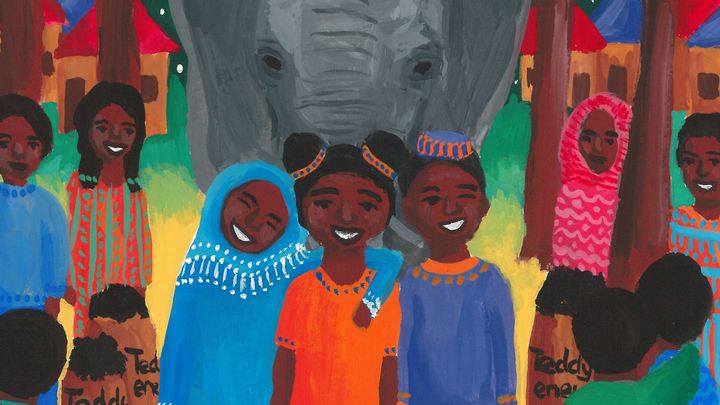
Teddy’s Energy – Support outreach in Tanzania
Donation protected
Let’s talk about “helicopter research” (and support us to avoid it)!
Contrary to what you may think, helicopter research is not the study of aircrafts with rapidly rotating propellers. Rather, it is the tendency of researchers from high-income countries to conduct fieldwork in low-income countries without properly engaging local people and communicating results to them.
Helicopter research is a very unfortunate practice because communicating research findings back to communities can have many positive benefits for both communities and scientists. In this video, my colleague, Tanzanian independent researcher Vincent Gerald Vyamana, explains that science outreach in communities “gives them a chance to evaluate findings and integrate them in their daily lives” and that it “gives them a feeling of being respected”. Vincent also highlights that science communication benefits scientists themselves, because “through presentation and discussion with local communities researchers are able to validate unanswered questions and also validate recommendations on future research”.
Helicopter research is still common practice, even though many scientists would like to and actively try to avoid it. Reason for its persistence is that outreach to local communities requires significant financial investments; money that is usually not accounted for in traditional funding schemes. This is especially the case when research is done in regions where oral communication is custom and where there is limited access to electricity and internet.
At the end of my PhD in July 2022, I encountered the exact problem described above. During my PhD, we conducted, in total 2.5 months, of fieldwork in six Tanzanian villages. Over a hundred villagers were willing to be interviewed and many helped us with field data collection and provides us with much knowledge. Thanks to this, my colleagues and I were able to produce relevant findings on the impacts of forest management on forest use for charcoal production and the livelihoods of charcoal producers. Much of these findings are relevant to the six villages and could be used by them to further improve their forest management schemes.
To date, my PhD research can still be labelled as helicopter research. That is why I, together with my Tanzanian colleagues Vincent Gerald Vyamana and Moshy Salehe Mpembela, have set up the Teddy’s Energy outreach project. During this project we aim to communicate research outcomes to the six Tanzanian villages we conducted fieldwork in the form of workshops, a report and a children’s book I wrote, called Teddy’s Energy. We aim to conduct the outreach over six days in February 2024. We will work hard over the coming months to develop high quality outreach materials and workshops (see our website for more information).
Now you may think. But what about the lack of funding? Is this problem solved?
Unfortunately not yet. To put operation Teddy’s Energy in motion, we aim to gather crowdfunding to cover salaries of Vincent and Moshy, as well as travel costs and workshop materials. That is why I set up a GoFundMe campaign for the Teddy’s Energy project. Any donation to the project helps us fund our outreach in Tanzania. In return, you are invited to download the free Teddy’s Energy children’s book from our website, which has been produced over the course of 1.5 years with lots of love and care (no copyright, feel free to distribute it any way you like). You can also buy postcards, posters, the original paintings and a printed copy of Teddy’s Energy on our website (https://hvantveen93.wixsite.com/my-site) on which you can find much more information about Teddy’s Energy and the research that inspired it.
Thank you very much for your interest. Huge thanks to everyone who has to supported us! Keep an eye on our website and follow us on LinkedIn if you would like to follow our progress.

This is a group picture of us in one of the villages in which we collected data. Below Tanzanian independent researcher, Vincent Gerald Vyamana, explains the value of communicating findings back to local communities.
The below YouTube video is a recording of Hanneke van 't Veen's PhD defense.
Organizer
Hanneke van t Veen
Organizer